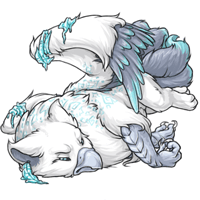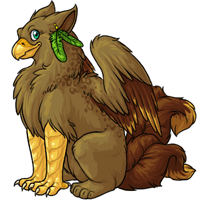Information
Alexander The Great_786 has a minion!

Boukephalos the Nightmare

Boukephalos the Nightmare
Alexander The Great_786
Legacy Name: Alexander The Great_786
The
Owner:
Age: 15 years, 5 months, 3 weeks
Born: November 6th, 2008
Adopted: 15 years, 5 months, 3 weeks ago (Legacy)
Adopted: November 6th, 2008 (Legacy)
Statistics
- Level: 5
- Strength: 11
- Defense: 10
- Speed: 10
- Health: 10
- HP: 10/10
- Intelligence: 4
- Books Read: 4
- Food Eaten: 0
- Job: Unemployed
THERE IS NOTHING IMPOSSIBLE TO HIM WHO WILL TRY
- Attributed to Alexander The Great

Painting detail: The Roses Of Heliogabalus by Sir Lawrence Alma-Tadema
Name: Alexandros III of Macedon
Birthdate: 20th July 356 BCE
Deathdate: 10th or 11th of June 323 BCE (aged 32)
Birthplace: Pella, Macedon
Reign: 336 - 323 BCE
Predecessor: Philip II of Macedon
Successor: Alexander IV of Macedon, Philip III of Macedon
Parents: Philip II of Macedon, Olympias of Epirus
Spouses: Roxana of Bactria, Stateira of Persia
Lovers: Hephaistion, Bagoas
Titles:
King of Macedon (336 - 323 BCE)
Great King (Shah) of Persia (330 - 323 BCE)
Pharaoh of Egypt (332 -323 BCE)
King of Asia (331 - 323 BCE)
Alexander the Great died at the age of 32, leaving behind the greatest empire the world had ever known. His is a story that has intrigued millions over the past 2,000 years and continues to captivate our imaginations to this day. In his short life, Alexander perhaps accomplished more than any man before or since. His great dreams and fiery determination couldn't be held within the kingdom of Macedon, to which he was born. With such achievements and worldly influence, Alexander impacted his world so profoundly that his very mortality was questioned. Could his greatness really be that of a mere man and not a god?
Alexander III of Macedon was born on or about July 20th, 356 B.C. to King Philip II - a man at the height of power. Growing up, Alexander showed promise at an early age. He impressed envoys visiting his father with his maturity, and even stunned the king himself when he tamed and broke an erratic stallion under his own hand. This beast would become Alexander's cherished warhorse, Bucephalos (or Boukephalos), meaning "ox-head". Upon witnessing this spectacle, Philip wept with pride and spoke the prophetic words,
"My boy, you must find a kingdom big enough for your ambitions. Macedonia is just too small for you".
The young Alexander's mind was cultivated by the great Greek philosopher, Aristotle, who served as tutor to him and perhaps his closest companions. Aristotle enriched Alexander's love for Homer's Iliad, a story to which Alexander greatly aspired. The young prince quickly likened himself to Achilles and strove to emulate the great warrior. he even went so far as to assign the role of Patroclus to his closest companion, Hephaistion. It is true that Achilles and Alexander share some striking parallels. Both were believed to be the sons of mortal women and gods, both had lifelong male lovers who died before them, both victoriously led the Greeks against barbarian forces, and both died at an early age while attempting to surpass those around them. In fact, one of Alexander's favorite lines from Homer was said to be,
"Ever to be best and stand far above all others".
Alexander was soon able to prove himself, when, at the age of 19, he became cavalry commander of his father's great army. It wasn't long after his undertaking of this new position, that Alexander was abruptly crowned king upon the shady assassination of his father, King Philip II. He immediately embarked on his father's dream of conquering the East, upon his accession of the throne in 336 B.C.
Alexander is a recognized military genius and his skill no doubt propelled him to his domination of the known world. Indeed, Alexander never lost a battle. To his men, he was heroic and godly in his prowess and tactic; to his enemies, he proved to be an unstoppable force.
Alexander began by campaigning in Thrace, and against the Illyrians, ending in the destruction of Thebes. In the spring of 334 B.C., Alexander assumed command of the Persian expedition and crossed into Asia. The campaign was off to a strong start with the Battle of the River Granicus and further expeditions in western Asia Minor. Successful campaigns and sieges followed and Alexander's army won its first great battle against Darius III, the Great King of Persia, at the battle of Issus in 333 B.C.Alexander soon earned his second title as Pharaoh of Egypt in late 332 B.C.Even more determined to take the massive Persian Empire, Alexander once again engaged Darius, this time at the Battle of Gaugamela on October 1st of the year 331 B.C. The outcome of this battle was unsatisfactory to Alexander. Darius fled, effectively handing the victory to the Macedonians. Although the mightiest empire on Earth was now securely in his possession, Alexander could not take on the title of Great King of Persia until Darius was captured. Even though he was on the run, he was still the rightful king of Persia.
Alexander entered Babylonia in the fall of that year, and took Darius' palace as his own. Campaigns continued into the interior of the present-day Iran in the following spring of 330 B.C. That summer, Darius' body was discovered. He had been murdered by his own men. When Alexander demanded that the betrayers present themselves so he could "raise them above all men," they did so. Staying true to his promise, Alexander did raise them above all men - by having them impaled upon stakes.
He had a message to prove: only a king may kill another king.
Alexander promptly took on the coveted role of Great King. The army headed next towards Bactria and arrived at the feet of the Hindu Kush. The actual crossing in the spring of 329 B.C. pushed his men to their limits. The next couple years were spent solidifying his control over his new empire. Revolts were crushed as campaigns and guerrilla warfare continued. Alexander took his first wife, Roxane, in 327 B.C. She would bear him his only son. The army departed from Bactria in the late spring and recrossed the Hindu Kush. By the winter of 327 B.C., the invasion of India had begun. Alexander's next great victory came at the Battle of the Hydaspes with the defeat of Porus, the Rajah. In the face of mutiny from his exhausted troops, Alexander next led the journey down the Hydaspes to the Indian Ocean.
Heading back west towards his homeland, Alexander suffered one of his greatest blows - the death of his beloved companion, Hephaistion, at Ecbatana in October of 324 B.C. In early 323 B.C., Alexander arrived in Babylon and began preparations for the Arabian expedition. It was never launched as on June 10th, 323 B.C., Alexander died of fever, and perhaps, a broken heart. He had reigned just over 12 and a half years.
~ ~ ~
Taking into account all that he achieved in his short time, it is undeniable the great impact he had on the world. Alexander's greatest dream was to unite the peoples of the world, creating one civilization that he, no doubt, intended to rule as a god. Although he didn't quite achieve this, his sphere of influence still spread far and wide. His unification of East and West shaped the world for centuries to come and made it what it is today.
Upon taking the title of King of Persia, Alexander began to adopt Persian customs and dress, and made an effort to learn their language and culture. This open attitude toward barbarian custom was not looked upon favorably by many of Alexander's men. The older generals who had served Philip, such as Parmenio and Antipater, held a great disapproval of this mixing of Greek and barbarian cultures and practices. In the end, these rifts would internally divide Alexander's men.
Alexander, with his expanding rule and contemporary attitude, soon became a legacy within his own time. His unification and marriage of foreign cultures and peoples broke down long-established barriers between kingdoms and empires. Under his rule, the people were one. Perhaps his death best illustrates his remarkable influence. The great ruler's funeral train drew enormous crowds along its route. His funeral procession is unmatched in its grandness and spectacle as it ultimately traveled to Egypt. Upon reaching its destination, Alexander's body was embalmed and sheathed in gold. His tomb was left open so that throngs of mourners and worshipers cold view him. His legend had indeed inspired worship and cults that lasted long after his death. Extravagant riches and gifts were placed alongside his body until 397 A.D., when his tomb was most likely destroyed by anti-pagan Christians.
~ ~ ~
As it may seem, such greatness could only be attainable by a god. But although some people may have had their doubts, Alexander was certainly a mortal being. It is true, that by his end, Alexander most likely thought himself to be a god in his own right. This can clearly be seen in his request to elevate Hephaistion to the status of a demigod upon his lover's death. For his companion to be worshiped as a demigod, Alexander himself would had to have been a god on Earth. Some certainly considered him so. He is said to have detested feeling like a mortal, and is quoted as saying that sex and sleep gravely reminded him of his mortality.
His mortality can also, perhaps, be seen in his flaws. Not only did he initiate and carry out bloody sieges and massacres on native tribes and resisting cities, such as at the destruction of Thebes, he also turned upon those closest to him. Philotas, son of Parmenio and commander of the companion cavalry, was implicated as being part of a plot to assassinate Alexander. He was tried and executed. To avoid blood feud, Alexander then had Parmenio, one of his greatest generals and a favorite of the late King Philip, murdered. Parmenio, set in the old ways, had become quite an opponent to the king's radical new ways. The conviction of Philotas conveniently gave a reason to get rid of him. This is not the only example of a Macedonian's blood being spilled. Deep in his cups and under the spell of drink, Alexander personally murdered one of his closest friends, Cleitus the Black, in a drunken rage. Upon realizing what he had done, Alexander spent days in mourning and self-loathing.
But despite his imperfections, Alexander was generally a good and honorable man. He was a great king, respecting and liberating the peoples he conquered. He showed acceptance and acknowledgment of foreign ways, and even went so far as to integrate barbarians into his closest circle. In fact, he made Oxathres, Darius III's brother, a companion. Persians were also given some of the highest positions as generals and commanders. Alexander, rather than having his men fight for him, actually fought alongside them in battle. Among his army, for which he showed great consideration, he did not set himself as a god, but rather rode into battle as an equal. I think that historian Robin Lane Fox said it well in his contribution to the reference book, The Art Of War:
He never asked of others what he would not risk himself. He even put care of their wounds before his own. He led by example in the front line, inspiring his men with a faith in his fortune and invincibility.
- Robin Lane Fox
Alexander was truly a mortal man in possession of a god-like charisma and confidence.
~ ~ ~
In conclusion, it is easy to see how Alexander earned his title as "the Great". He is truly an undeniably remarkable figure in his accomplishments, worldly influence, and personal ways. History keeps returning to this pivotal ruler as future emperors and conquerors seek to associate themselves with, and borrow, his greatness and fame. Alexander's legacy has been sought and praised by leaders such as Julius Caesar, Emperor Gaius Caligula, and Napoleon Bonaparte. Alexander's legacy has also continued to fuel mythology and legend, such as in the medieval Alexander Romances. Through these factors, Alexander has rightfully acquired a title and name that will live on forever; Alexander the Great.
TEXT © ME, ELIZABETH BAKER (
DO NOT TAKE OR REPRODUCE ANYTHING,

Artwork:
Look at all these REAL masterpieces of me.
The Family Of Darius Before Alexander
By Paolo Veronese
note: Hephaistion is the figure to the right of Alexander (in red).
This painting depicts the moment when the Queen mistook Hephaistion for Alexander and Alexander is correcting her.
Do not worry, mother. He too, is Alexander.
Alexander's Entry Into Babylon
By Charles Le Brun
Alexander the Great Threatened by His Father
By Donato Creti(detail of larger painting)
The Family Of Darius Before Alexander
By Paolo Veronese
note: Hephaistion is the figure to the right of Alexander (in red).
This painting depicts the moment when the Queen mistook Hephaistion for Alexander and Alexander is correcting her.
Do not worry, mother. He too, is Alexander.
Alexander's Entry Into Babylon
By Charles Le Brun
Alexander the Great Threatened by His Father
By Donato Creti(detail of larger painting)
VIDEOS:
Alexander and Hephaistion
Alexander - "Like Home"

Hephaistion, Alexander.
Everything is in it. There's greed, there's jealousy, there's love, there's pain, there's hope, there's desperation, there's pride, there's friendship, there's betrayal. It's an amazing, amazing story. There's so much in it - it's so dense that it nearly reads like bad fiction.
- Colin Farrell on Oliver Stone's epic, Alexander (2004)
Visit Hephaistion's page to learn about Macedonian battle tactics!
Pet Treasure

Mark of Sol

Gold Sun Relic

Sun Gem

Crown of the Sun Lord

Radiant Mask

Solar Staff

Leaf Laurel

Gold Laurel

Silver Laurel

Emperors Brooch

Oracle Accessories

Garnet Ring

Lust Eros Wings

True Love

Gold Helmet

Irion Battle Shield

Light Blade

Unadorned Bronze Sword

Golden Rays Top (Left Side)

Solar Kilt

Reddish Strappy Sandals

Dark Shaman Deer Hide Cape

Snow Queen Fur

Ornate Invitation

Scarred Leather Record Book

Sands of Time

Ancient Black Pot

Simple Goblet

Fake Apples

Fake Grapes

Consecrated Olive Oil

Gold Ankh Oval Trunk

Solar Barque

Lion Tooth

Gold Steer Horn

Small Colcannon Sun Piece

Shrine of Apollonia



